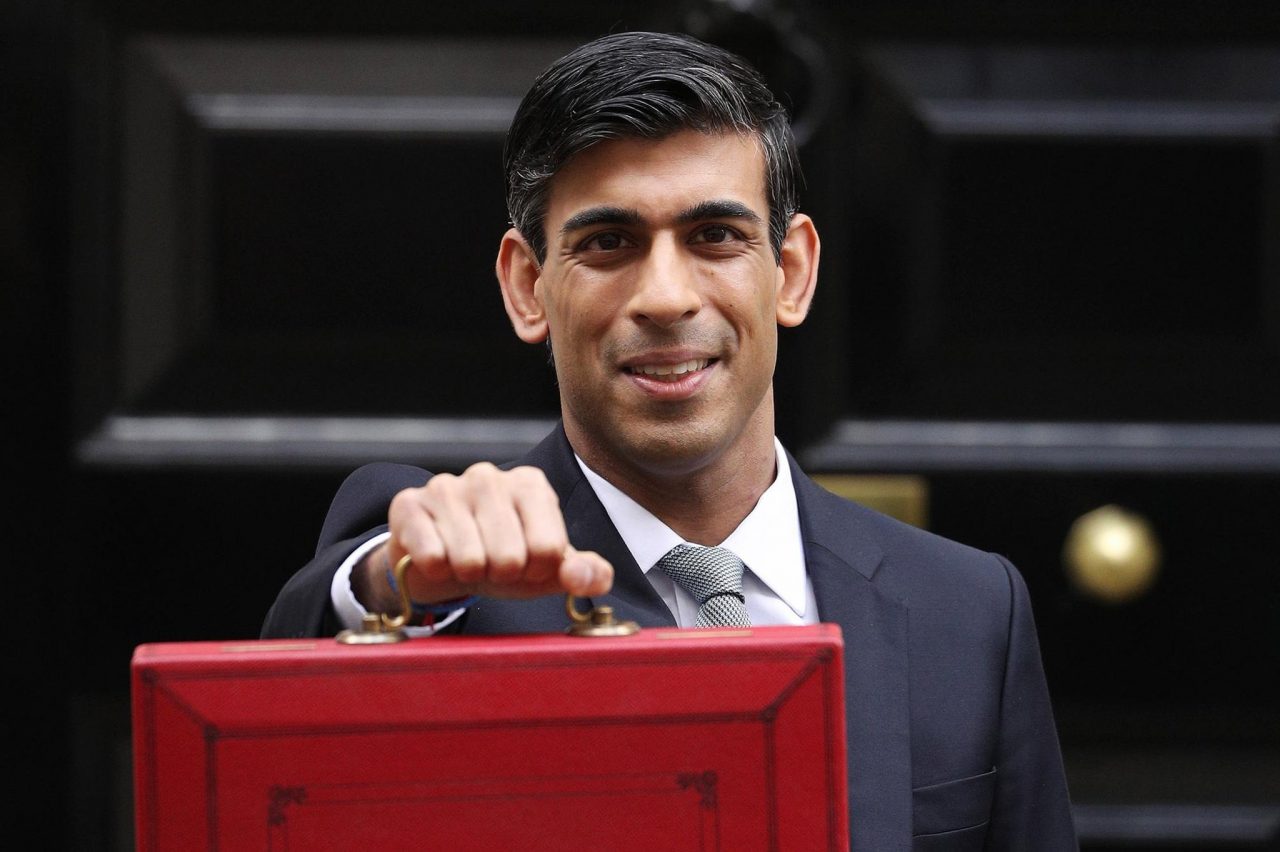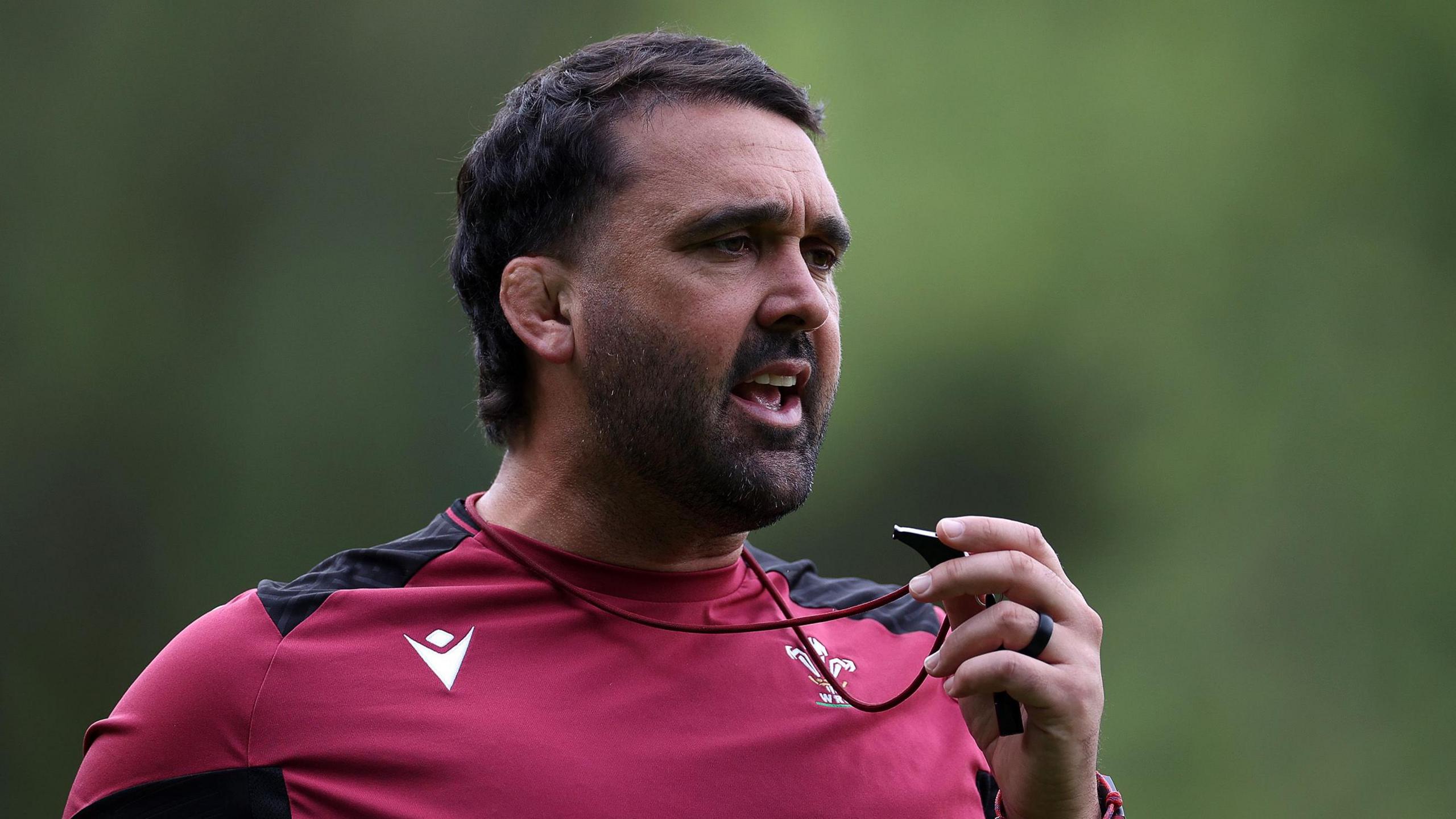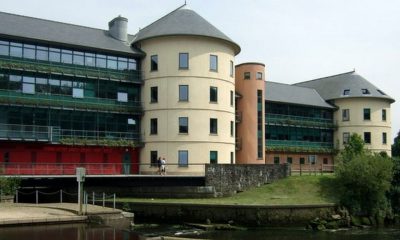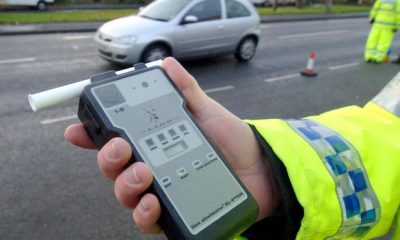News
Budget is good news for Pembrokeshire

AS PART of a series of payments made from the Westminster Government’s ‘Levelling Up’ Fund, the regeneration of Haverfordwest’s town centre got a massive shot in the arm.
Preseli Pembrokeshire MP Stephen Crabb has welcomed the announcement that £17.7m has been secured from the UK Government Levelling Up Fund for Pembrokeshire.
Pembrokeshire is in the first tier of areas eligible for the Levelling Up Fund created by the UK Government to replace EU funding. The funds are being financed directly by the Westminster Government. Today, local Councils across the UK are finding out which bids have been successful.
Mr Crabb has been working with Pembrokeshire County Council on the bid to the Levelling Up Fund to support the ongoing regeneration of Haverfordwest town centre. The bid focused on the need to make the historic town centre a more attractive place for visitors.
Now that this money has been secured, it will enable the restoration of the 900-year-old historic castle into a high-quality all-weather visitor attraction and develop the river’s potential as a feature of the town centre.
Commenting, Mr Crabb said: “I have worked hard to support Pembrokeshire County Council in their bid to the Levelling Up Fund and make the case to the Treasury about why Pembrokeshire should be put at the front of the queue for this funding.”
“I am delighted that the Chancellor has listened.
“It means that the money I have secured for Pembrokeshire can turn these plans and aspirations for Haverfordwest town centre into reality. It is now up to Pembrokeshire County Council to use this money to support traders and boost local economic activity.”
MINIMUM WAGE RISE
The headline takeaway from a Budget long on levelling up and short of detail on what it would like is a hike in the UK’s minimum wage.
From April 1, 2022, workers over 23 will get a minimum wage rise from £8.91per hour to £9.50.
While the increase is welcome, it is counterbalanced by increased personal taxation on income, rising prices, and the accompanying cut in entitlement to Tax Credits for those who get the rise.
However, the Chancellor took the chance to change a system that perversely punishes working extra hours or earning more by a loss in Tax Credit payments and/or Universal Credit.
Before the Budget, for every £1 earned over the Tax Credit limit, Universal Credit recipients lost 63p in what the Chancellor described as “a tax on work”. Mr Sunak cut that to 55p/£1. Setting the level at that originally intended when the taper in Tax Credits was originally proposed by Iain Duncan-Smith.
While that sort of measure would usually only come into effect at the start of a new tax year (in this case, next April), the Chancellor told the Commons the cut will come into effect no later than December 1.
That means earnings by those affected by the current arrangements will rise in the run-up to Christmas.
An increase in the National Minimum Wage will be affected by an increase in inflation, especially as the rise in the former will not come in until next year.
On top of that, the Chancellor announced a £500 increase in the threshold for the basic income tax rate.
Mr Sunak claimed a single mother with one child earning the National Minimum Wage would be better off by over £1,100 per year.
DUTIES CUT AND FROZEN
In what’s bound to be a popular move with pub-goers, the Chancellor announced an overhaul of duties on alcohol.
Describing the system as ‘outdated’ and ‘complex’, Mr Runak slashed the number of different duties from sixteen to five.
The strongest drinks (for example, white cider) will see their prices rise. However, beers, ciders, and fruit ciders will see a significant reduction in duty for on-licensed sales.
Fruit ciders, subject to their own duty, will see the largest cut in duty, while beer and cider will fall in price by an average of around 3p/pint.
There will be no increase in excise duty on whiskies. At the same time, sparkling wines had a massive duty cut, reducing their price to reflect their increased popularity and lower alcohol content.
The Chancellor combined those announcements with an extension of rates relief for licensed premises and specific relief on draught beer sales.
Mr Sunak also announced a freeze on fuel duty.
NOT SO NEW MONEY
A Raft of spending pledges made by Chancellor Rishi Sunak in his Budget speech on Wednesday (October 26) consisted of repackaged spending commitments already made.
A large announcement that England’s city regions would get £6.9bn to spend on new transport infrastructure contained £1.5bn of new funding. The balance consisted of £4.2bn committed in 2019 under Theresa May’s Government and further funding for public transport, which the PM announced in 2020.
Similarly, £5.9bn of NHS funding for England is extra cash plus old spending commitments put in new wrappers.
MORE MONEY FOR WALES
Wales will receive extra funding through the Barnett formula – a mechanism the UK government uses to allocate additional money to the devolved nations when it spends more in England.
However, Mr Sunak said Wales would benefit by £2.5bn over the Barnett formula over the term of the three-year spending review.
The most contentious uses of Westminster’s powers, the levelling up and shared prosperity funds, are added to that funding. Money from them will be paid directly to those commissioning eligible projects and not to the Welsh Government.
Part of Westminster’s rationale is that the Welsh Government does not target spending on priorities it identifies as UK-wide.
For example, if the Westminster Government said it would invest £6bn in the NHS in England, Wales would get £300m. However, that money could be spent where the Welsh Government saw fit and not necessarily where Westminster intended it to go.
The Welsh Government’s position is straightforward; all money spent in Wales on matters over which it exercises control should be allocated to the priorities it identifies. It will not or cannot separate specific funding from Westminster’s overall spending grant.
The Chancellor’s announcement of extra funding for specific projects in Wales, bypassing Cardiff Bay, will increase tensions between Westminster and the Welsh Government.
RAISING REVENUE
The Chancellor cannot long put off dealing with two specific problems affecting government funding.
The first is well-known, but action has so far been avoided: the shrinking tax base.
The UK government raises around £800 billion a year in receipts – income from taxes and other sources – equivalent to around 37% of the size of the UK economy, as measured by GDP.
The majority are from three main sources: income tax, National Insurance contributions (NICs) and value-added tax (VAT). Together these raise over £460 billion.
The UK’s working-age population is rapidly contracting. That means less money raised from direct taxation. The effects of the contraction on public finances are already being felt.
What the UK’s current workforce pays in National Insurance now doesn’t pay for or contribute to their pensions but their parents’ and grandparents’.
As people live longer and in worse health, workers now and in the future face paying more of their wages in tax to support the retired and elderly ill.
The weight of the pensions bill was £101bn in the last financial year, approximately two and a half times the total defence budget.
As a point of comparison, the total amount paid out in working-age unemployment benefits was a fraction under £2bn.
Taxes on consumption fall proportionately most heavily on those with the lowest incomes.
Imposing increased taxes on consumption would effectively cut the incomes of the lowest earners. It would also hit those voters in post-industrial marginal seats upon whom the Government depends for its majority.
REPLACING DUTY
The second issue is less acknowledged but no less challenging.
Fuel Duty raises £21bn a year.
Increased fuel efficiency in motor vehicles means they need to refuel less often. That means less fuel duty coming into the Treasury.
The Government aims to decrease reliance on cars for commuting, which will cut the amount of fuel duty even further.
Ultra-Low Emission Vehicles pay little or no Vehicle Excise Duty, and purely electric vehicles pay no fuel duty, either.
Unless there’s a significant change in tack, the Treasury will lose both fuel duty and Vehicle Excise Duty from its annual tax take in pretty short order.
Fuel duty alone amounts to £28bn of revenue each year, and Vehicle Excise Duty is another £6.5bn a year.
Planning to replace that revenue cannot be delayed.
Crime
Man charged with attempted murder after Carmarthen park incident

57-year-old due in court following alleged knife and stalking offences
A MAN has been charged with attempted murder following a serious incident in Carmarthen town centre last week.
Dyfed-Powys Police confirmed that James McKenna, aged 57, from Carmarthen, has been charged with attempted murder, possession of a bladed article in a public place, and stalking.
The charges relate to an incident in Carmarthen Park on Thursday (Jan 29), which prompted a significant emergency services response and caused concern among residents.
Police have not yet released full details of the circumstances, but officers were seen in and around the park area for several hours following the incident while enquiries were carried out.
McKenna is due to appear before Llanelli Magistrates Court on Thursday (Feb 5).
The Herald understands the case involves allegations of both violence and targeted behaviour towards an individual, with stalking listed among the charges.
Public concern
Carmarthen Park is a popular and busy public space used daily by families, dog walkers and joggers, and incidents of this severity are rare.
The news has prompted concern locally, particularly as the alleged offences include possession of a knife in a public place.
Residents have previously raised questions about safety in parks and open spaces across west Wales, especially during darker winter evenings.
Court proceedings
At this stage, the charges remain allegations and the case will now proceed through the courts.
Magistrates will decide whether the case is sent to Crown Court due to the seriousness of the attempted murder charge.
Further details are expected to emerge during Thursday’s hearing.
The Herald will be attending court and will provide updates as they become available.
Crime
Sex offender jailed after living off grid in Pembrokeshire and refusing to register

Man walked into police station after months avoiding authorities
A CONVICTED sex offender who told police he intended to live “off grid” rather than comply with legal monitoring rules has been jailed after handing himself in at a Pembrokeshire police station.

Christopher Spelman, aged 66, of no fixed address, appeared for sentence at Swansea Crown Court after admitting breaching the notification requirements of the sex offenders register.
The court heard Spelman was released from prison in Dorset on July 4 last year but immediately refused to provide police with an address, despite being legally required to do so within three days.
Instead, he indicated he planned to buy a tent and live outdoors.
Prosecutor Brian Simpson said officers subsequently launched a nationwide search when Spelman failed to make contact with police. Public appeals were issued and his case featured on the television programme Crimewatch.
Detectives believed he had been travelling around the UK using public transport and staying at campsites. He was known to have links to several areas including Merseyside, Manchester, Devon, Cornwall and Hampshire.
His whereabouts remained unknown until January 3 this year, when he walked into Haverfordwest police station and was arrested. It is unclear how long he had been in Pembrokeshire.
Spelman previously served seven years in prison after being convicted in 2014 of 12 counts of sexually assaulting a girl under the age of 14. He was placed on the sex offenders register for life.
The court heard this was not the first time he had failed to comply with the rules. After an earlier release in 2016, he again failed to register his address and avoided police for around five years before being caught.
He has 11 previous convictions for 29 offences.
Defence barrister Andrew Evans described the case as unusual and said his client had long disputed his original conviction and had expressed a wish to live “outside society”.
However, he said Spelman had gradually accepted that he remained subject to court orders and now wanted more stable accommodation and a chance to rebuild his life. The defendant asked the court to impose a custodial sentence so arrangements could be made for his future release.
Judge Geraint Walters noted there were signs Spelman wished to change but warned that any further breaches would result in longer prison terms.
With credit for his guilty plea, Spelman was sentenced to 10 months in prison. He will serve up to half in custody before being released on licence.
Crime
Former Wales rugby star admits Christmas Day drink-driving offence

Ex-Ospreys captain was almost twice over limit in Pembroke town centre
Former Wales back row Jonathan Thomas has admitted driving through Pembroke town centre on Christmas Day when he was almost twice over the drink-drive limit.
This week Haverfordwest magistrates heard that Thomas, 43, was stopped by officers as he drove his Mercedes CLA 220 along The Green, Pembroke, at around 5pm on Christmas Day.
“The officers were very concerned at the manner of his driving, as the car was being driven erratically and was swerving to the other side of the road,” said Crown Prosecutor Sian Vaughan.
“When Jonathan Thomas got out of the car, the officers could see that he was having difficulty standing and was unsteady on his feet.”
Subsequent breathalyser tests showed Thomas had 62 mcg of alcohol in his system, the legal limit being 35.
Thomas, who has no previous convictions, pleaded guilty to the drink-drive charge and was represented in court by solicitor Jess Hill.
“He has family in the area and had travelled to spend time with them on Christmas Day,” she told the magistrates. “He’s very remorseful for his actions and hugely regrets his decision that day.”
Jess Hill concluded by saying that Thomas is currently “between jobs and living off his savings”.
Thomas, who gave his address as Main Road, Bredon, was disqualified from driving for a total of 18 months.
“The length of your disqualification reflects the fact that you were more than a little bit over the limit,” commented the presiding magistrates when imposing sentence.
He was fined £120 and ordered to pay £85 costs and a £48 court surcharge.
The former Wales back row left his role as Swansea RFC head coach at the beginning of December 2025 as a result of ongoing health concerns. He was forced to retire from playing in 2015 on medical advice after being diagnosed with epilepsy and is one of the 390 former rugby union players currently taking part in a concussion lawsuit against the sport’s authorities.
“Long-standing issues linked to the head trauma have caused me some concern recently and it has been impossible for me to give the role everything it needs,” he said in a previous interview with the BBC.
His rugby career started out with Pembroke RFC juniors before moving to Swansea RFC, which he captained when he was 19. He then joined the Ospreys where, over a ten-year period, he won four league titles and an Anglo-Welsh Cup. He was the youngest player to captain the Ospreys and, at the time of leaving, was the joint highest appearance holder, together with Andrew Bishop, on 188 appearances.
His international career saw him play for Wales at Under-16, Youth, Under-19, Under-21 and Sevens levels. He made his senior international debut against Australia in 2003, featured at the 2007 Rugby World Cup and was part of two Six Nations Grand Slam-winning sides in 2005 and 2008. Between 2004 and 2011, Thomas was included in every Wales Six Nations squad. In his appearances for Wales, he scored seven tries.
-

 Health6 days ago
Health6 days agoConsultation reveals lack of public trust in health board
-

 News2 days ago
News2 days agoPrincess of Wales visits historic Pembrokeshire woollen mill
-

 Crime5 days ago
Crime5 days agoPembroke man accused of child sex offences sent to Swansea Crown Court
-

 Health3 days ago
Health3 days agoDoctor struck off after sexual misconduct findings at Withybush Hospital
-

 Community7 days ago
Community7 days agoCampaign to ‘save’ River Cleddau hits over 2,200 signatures
-

 Crime1 day ago
Crime1 day agoHakin man’s appeal delayed again as Crown Court seeks guidance on insurance law
-

 Community5 days ago
Community5 days ago50s women threaten legal action over pension compensation refusal
-

 Business6 days ago
Business6 days agoEight-year prison sentence after vehicle stop uncovers drugs worth over £150,000







































